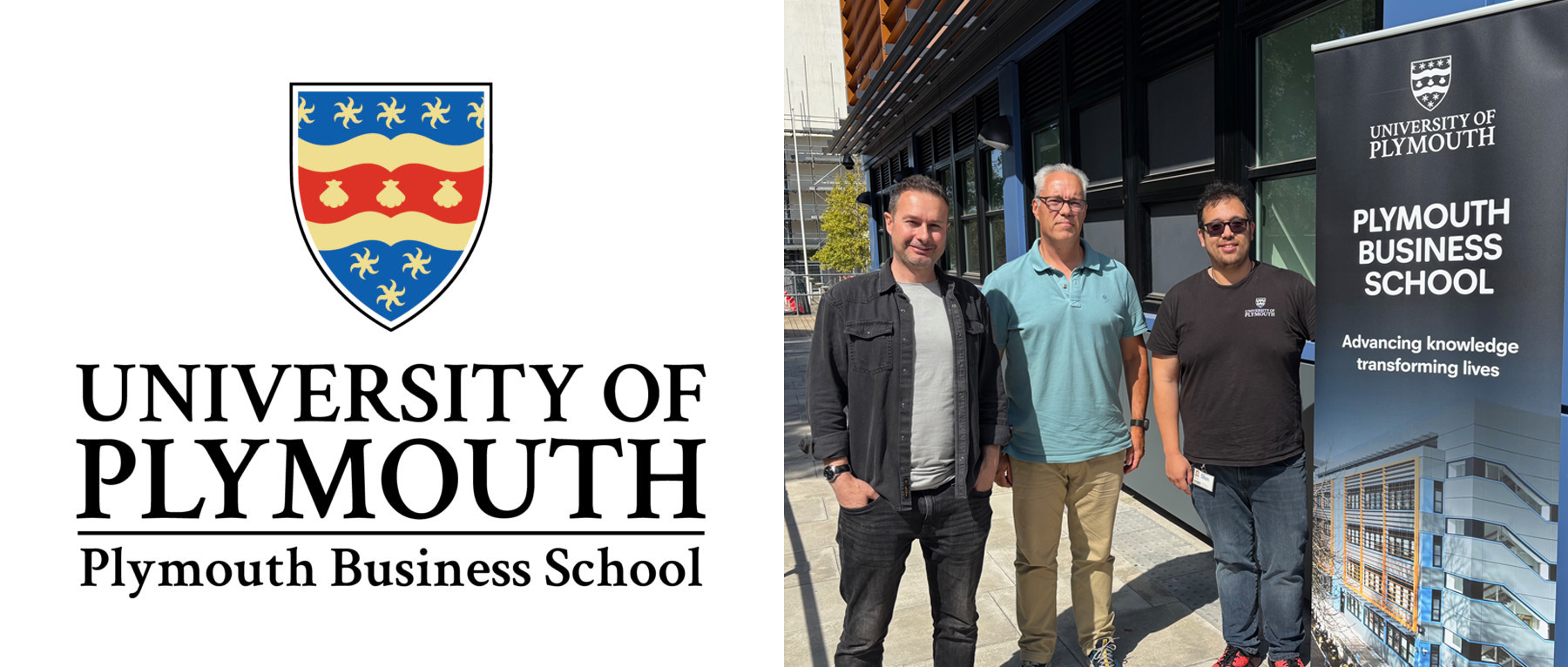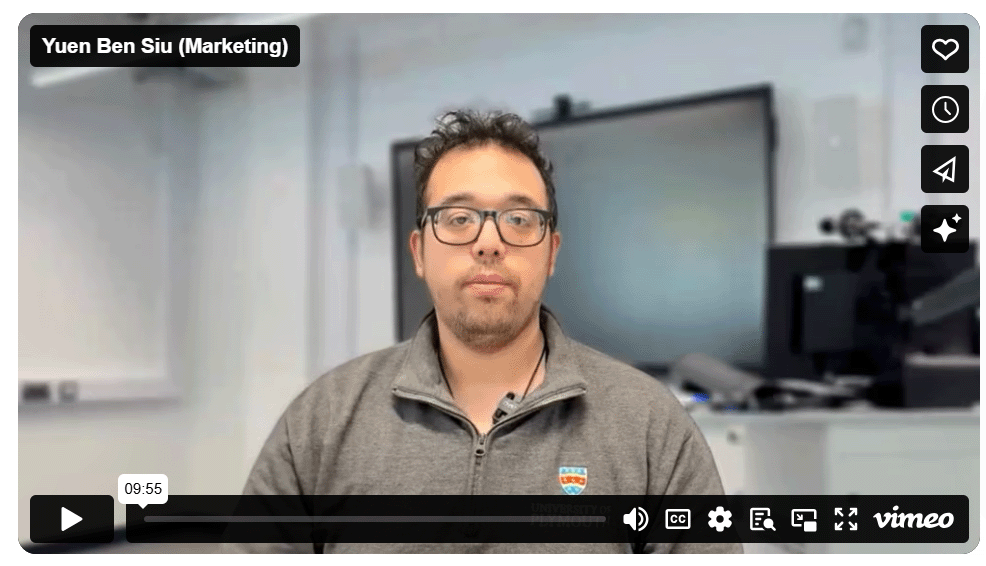Last week, I had the privilege of meeting with Dr. Ben Siu, a Lecturer in Marketing at the University of Plymouth Business School and self-confessed AI Enthusiast!
We talked about AI in education — not just in theory, but in practice. What I heard was both inspiring and incredibly relevant for anyone thinking about how AI can genuinely enhance learning and development in their organisation.
Ben and his colleagues aren’t just experimenting with AI tools; they’re embedding them into the student journey in ways that are thoughtful, practical, and (most importantly) human-centred. It’s a brilliant example of how AI can be used not to replace people, but to empower them.
In this article, I share some of the brilliant ways Ben and his team are using AI to support student learning – from creating Custom GPTs that act as academic assistants, to AI tools that boost confidence, spark curiosity, and save time for both students and staff.

Helping Students Start on the Right Foot
One of the big challenges students face when writing academic literature reviews is figuring out where to start. Ben described a common issue: students begin researching a topic, only to realise halfway through that they’re not actually interested in it — or worse, don’t fully understand it. This leads to wasted effort, frustration, and second-guessing.
To address this, Ben has introduced ChatGPT as a brainstorming tool — not just to generate ideas, but to help students refine their thinking before they even begin researching. They’re taught how to craft and adapt prompts, and then use a custom AI assistant to explore different subtopics, understand key themes, and identify which areas genuinely interest them.
It’s like giving every student their own academic tour guide, helping them navigate the maze of research topics before they start investing serious time. And it’s making a real tangible difference.
Custom GPTs: Personalised, Contextual, and Useful
What really stood out during our conversation was the way Ben and his team have been using Custom GPTs — AI models tailored to specific modules, topics, and even clients used in case studies.
For example, in the Marketing Research module, students use a Custom GPT called ‘Name That Design‘ to explore different research methods. The GPT is pre-loaded with content from the lectures, the client brief, and interactive exercises. Students can apply their knowledge, get instant feedback, and deepen their understanding — both in and outside the classroom.
Another Custom GPT helps students practise their pitching skills by simulating the experience of presenting to a real client. The bot responds with relevant questions, based on the client’s personality and business goals. It’s like a rehearsal partner that never gets tired and always gives constructive feedback; but most importantly is adaptable to when students want to work, whether that’s at 2pm or 2am.
And for the more practical side of university life? They’ve even created an AI assistant that answers admin questions, like “Where do I find the extenuating circumstances policy?” pulling information directly from university documentation.
Students end up feeling more confident, more engaged, and better prepared. And for staff, it means more time spent on teaching, mentoring, and actually connecting with students instead of repeating the same admin answers day-after-day.
What’s key in all this, is Ben and his team began with the problems, not the technology.
Their approach to AI is refreshingly grounded: it is never about chasing hype, but about tackling real challenges — supporting learning, sparking curiosity, and cutting down repetitive tasks.
Even more impressively, they’re doing it in a way that respects the complexity of education. These tools are carefully designed, embedded with context, and tested with real students. The feedback so far? Higher engagement, more effective group discussions, and improved student satisfaction.
As someone who works with businesses to adopt AI in a structured, human-first way, I think there’s a lot we can learn from this. Not least, the importance of starting with strategy – not the technology.
Whether you’re running a business, a school, or a team — the principle is the same: AI works best when it’s used to enhance people’s abilities, not replace them.
University of Plymouth Featured in Open AI’s Academy
Ben was also recently featured on the OpenAI Academy in a video demonstrating how he had been using ChatGPT to enhance student’s learning experiences in the classroom. You can watch Ben’s video here.
Final Thoughts
Spending time with Ben reminded me why I do what I do. AI doesn’t have to be abstract, scary, or dehumanising. It can be empowering, exciting, and a powerful way to boost your confidence, enhance your career, and help you perform at your best.
When used with intention and care, it becomes a powerful enabler, helping people learn faster, think deeper, and achieve more.
If you’re interested in applying these kinds of ideas in your own organisation (whether in education, business, or beyond) get in touch. Connect with me on LinkedIn or get in touch via our website and let’s explore how AI can help your team work smarter, not harder.

Matt Greaves
CEO and Founder
South West AI Solutions

